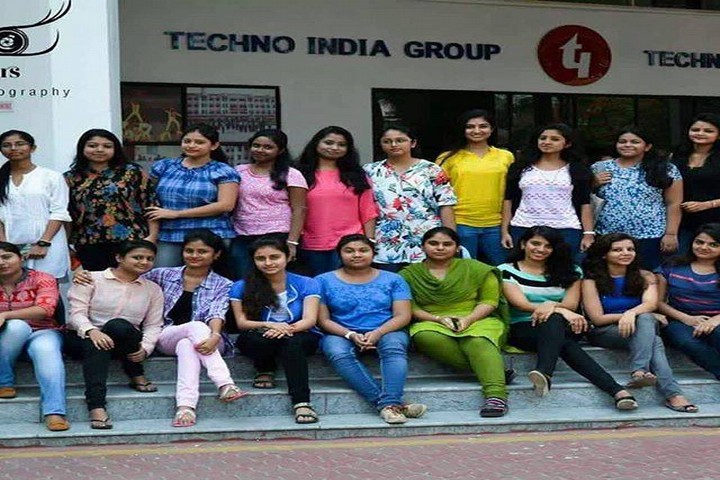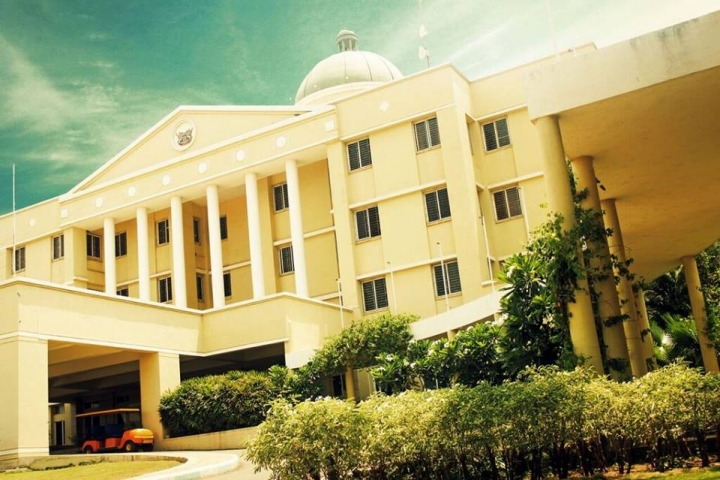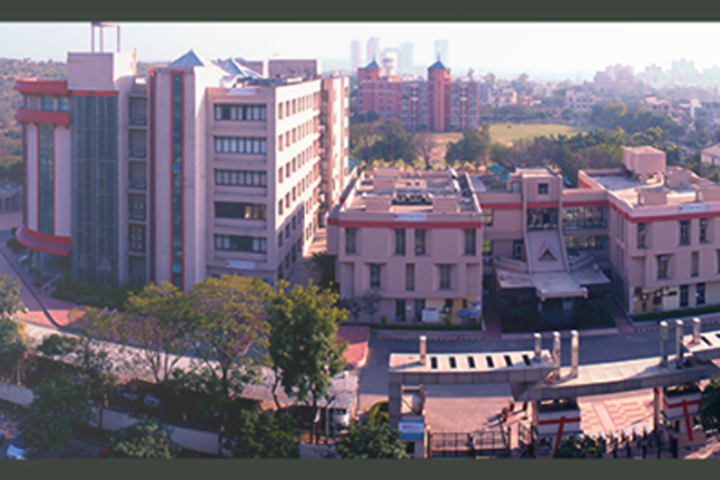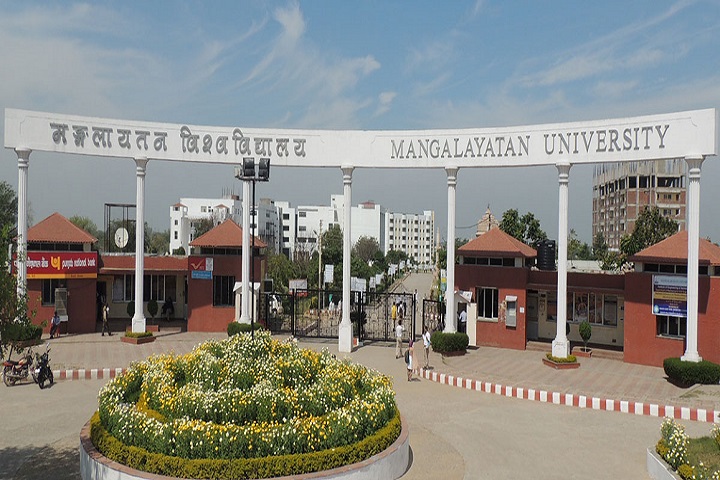
Cloud Technology Course Details - Fees, Subjects, Syllabus, Duration, Eligibility, Career Scope
Degrees offered: B.C.A., B.E /B.Tech, B.Sc., M.Sc., Diploma
What is Cloud Technology
Cloud Technology is a fast-growing technology that has revolutionised the way we store, access, and share data, making it an essential aspect of modern business and IT infrastructure. A cloud technology course deals with the meaning, principles, and applications of cloud computing. By pursuing a cloud technology course, students will acquire a comprehensive understanding of cloud computing, including its architecture, services, security, and management.
Cloud Technology course duration varies depending on the degree students pursue. Undergraduate courses in Cloud Technology typically last three to four years, whereas postgraduate programs span one to two years. Cloud Technology course fees also vary depending on the institution and level of study, with private institutions charging higher fees compared to government institutions. Read through the article below to know more about the Cloud Technology course, its eligibility, syllabus, colleges, scope, and more.
Highlights - Cloud Technology
Branch Name | Cloud Technology |
Degree | BCA, B.Tech, B.Sc., M.Tech, MCA, M.Sc., Diploma, PG Diploma, |
Duration | 4 Years (UG) |
Eligibility | UG: 10+2 with PCM |
Admission Process | Entrance Exam |
Top Entrance Exams | JEE Main, JEE Advanced, BITSAT, VITEEE, SRMJEEE, GATE |
Average Course Fees | Rs 3.5 Lakhs per year |
Top Colleges | KL University Guntur, ADTU Guwahati, Shoolini University Solan, OP Jindal University, Raigarh, ITM University, Raipur, Vivekananda Global University, Jaipur, Integral University, Lucknow |
Career Options | Cloud Architect, Cloud Security Engineer, Cloud Application Developer, Cloud Data Analyst, Cloud Service Manager |
Average Salary | Rs 9 Lakhs p.a. |
Recruiting Companies | AWS, Microsoft Azure, Google Cloud, IBM Cloud, Oracle, Cisco Systems, Infosys, TCS |
Specialization or Similar Ones
As a comprehensive academic program, the Cloud Technology course is designed to provide students with the knowledge and skills necessary to excel in the rapidly evolving cloud computing industry. With a Cloud Technology course, students will acquire a solid foundation in various aspects of cloud computing, including infrastructure, platforms, services, and security. The course also enables students to explore key specialisations within the cloud domain to better align their career aspirations with industry demands.
A Cloud Technology course offers various specializations for students to develop expertise in specific areas. Some of the major Cloud Technology specialisations are mentioned below.
Cloud Architecture and Infrastructure
Cloud Platform and Services
Cloud Security
Cloud DevOps
Cloud Data Management and Analytics
Cloud Service Management
Some Cloud Technology course specialisations from top universities are mentioned here.
B.Tech CSE with specialisation in Cloud Technology and Information Security | |
B.Sc IT Cloud Technology and Information Security | Diploma in Cloud Technology and Information Security Lateral Entry |
BCA Specialization in Cloud Technology and Information Security and Data Sciences | Post Graduate Diploma in Information Technology Specialization in Cloud Technology with IOT Integrated with Amazon |
Top Cloud Technology Colleges in India
In India, there are numerous Cloud Technology colleges offering Cloud Technology courses, ranging from diplomas to undergraduate and postgraduate degrees. Mentioned below is the list of top Cloud Technology Colleges in India along with their Cloud Technology course fees.
Colleges | Fees |
Vel's Institute of Science Technology and Advanced Studies, Chennai | Rs 3.68 Lakhs |
Rs 1.61 Lakhs | |
Rs 5.20 Lakhs | |
Rs 3.60 Lakhs | |
Rs 3 Lakhs | |
Rs 3.15 Lakhs | |
Rs 5.40 Lakhs | |
Rs 8.45 Lakhs | |
Rs 3 Lakhs | |
Rs 1.61 Lakhs |
Top Private Cloud Technology Colleges in India
Many private institutes in India offer Cloud Technology courses for UG and PG courses. Students can choose the best private Cloud Technology colleges as per their interests and affordability. We have listed below the top Cloud Technology Colleges in India along with their Cloud Technology course fees.
Private Cloud Technology Colleges in India | Fees |
Sandip University, Nashik | Rs 1.61 Lakhs |
Vel's Institute of Science Technology and Advanced Studies, Chennai | Rs 3.68 Lakhs |
Om Sterling Global University, Hisar | Rs 5.20 Lakhs |
Koneru Lakshmaiah Education Foundation, Hyderabad | Rs 3.60 Lakhs |
Pacific Institute of Computer Application, Udaipur | Rs 3 Lakhs |
St Teresa's College, Ernakulam | Rs 3.15 Lakhs |
Centurion Institute of Technology, Bhubaneswar | Rs 5.40 Lakhs |
Jain University, Bangalore | Rs 8.45 Lakhs |
SAGE University, Indore | Rs 3 Lakhs |
Sandip University, Nashik | Rs 1.61 Lakhs |
Top Government Cloud Technology Colleges in India
There are numerous government Cloud Technology colleges in India offering Cloud Technology courses for diploma, undergraduate, PG Diploma, and postgraduate degrees. Rashtrasant Tukadoji Maharaj Nagpur University is the top Cloud Technology college that offers Cloud Technology courses.
Eligibility Criteria (UG & PG) of Cloud Technology
Pursuing a Cloud Technology course requires aspirants to meet certain Cloud Technology eligibility criteria. For an undergraduate course, Cloud Technology course eligibility requires a minimum of 50% or higher marks in 10+2 examinations, with Physics, Chemistry, and Mathematics as compulsory subjects. For postgraduate courses, aspirants must have a bachelor's degree in a relevant field, with a minimum aggregate score of 50% or more.
The admission process for a Cloud Technology course typically involves entrance exams like JEE Main and GATE for undergraduate and postgraduate programs, respectively. Some institutions may also conduct their entrance tests or consider candidates' performance in the qualifying examination for admission.
Eligibility Criteria UG Courses
To pursue a Bachelor's in Cloud Technology course, candidates are required to meet the following eligibility criteria:
Must have completed 10+2 examinations with a minimum of 50% or higher marks.
Physics, Chemistry, and Mathematics as compulsory subjects in 10+2.
Qualifying in entrance exams like JEE Main, BITSAT, or institution-specific entrance tests, followed by participation in counselling sessions and group discussions as part of the admission process.
Top Entrance Exams for UG Courses
Bachelor's degrees in Cloud Technology are offered in B.Tech or B.E. in Cloud Computing and related fields like Information Technology or Computer Science with a focus on cloud technology. To pursue a Bachelor's in Cloud Technology in India, candidates must qualify for one of the entrance exams. We have mentioned below the top cloud technology entrance exams.
JEE Main: The Joint Entrance Examination (Main) is a national-level exam conducted by the National Testing Agency (NTA). The exam is held for admission to undergraduate engineering courses in IITs, NITs, IIITs, and other institutions.
JEE Advanced: The JEE Advanced is a national-level entrance examination conducted for admission to engineering courses at IITs. The exam is jointly organised by the seven zonal Coordinating IITs across India. The exam is conducted in computer-based mode.
BITSAT: The Birla Institute of Technology and Science Admission Test (BITSAT) is a university-level entrance exam conducted by BITS for admission to its undergraduate engineering programs.
VITEEE: VITEEE (Vellore Institute of Technology Engineering Entrance Examination) is a university-level exam conducted by VIT University for admission to its undergraduate engineering courses.
SRMJEEE: SRMJEEE (SRM Joint Engineering Entrance Examination) is conducted by SRM University for admission to undergraduate engineering programs. This is a common entrance examination for admission to all SRM Group institutes and universities across India.
Eligibility Criteria PG Courses
To pursue a Master's in Cloud Technology in India, candidates must meet the following eligibility criteria:
A bachelor's degree in a relevant field (Computer Science, Information Technology, or Engineering), with a minimum aggregate of 50% marks or more.
Qualifying for entrance exams like the GATE or institution-specific entrance tests, followed by personal interviews or group discussions.
Some institutions require aspirants to have work experience in the IT industry (but it is not mandatory).
Top Entrance Exams for PG Courses
Master's degrees in Cloud Technology are offered in M.Tech or M.E. in Cloud Computing and related fields like Information Technology or Computer Science with a specialisation in Cloud Technology. For a Master's in Cloud Technology in India, aspirants must qualify for one of the entrance exams. We have mentioned below the top Cloud Technology entrance exams one must take.
GATE: GATE (Graduate Aptitude Test in Engineering) is a national-level entrance exam conducted jointly by IITs and IISc for admission to postgraduate engineering programs in India.
College Predictors VIEW ALL
Scope of Cloud Technology in India and Abroad
The future scope of the Cloud Technology course is vast, with increasing demand for cloud computing professionals in diverse industries. The Cloud Technology job market is experiencing rapid growth as more organisations adopt cloud-driven solutions to streamline their operations. The Cloud Technology industry scope consists of a wide range of sectors, including IT, finance, healthcare, retail, and more. With the increasing adoption of cloud computing, the demand for skilled professionals is expected to grow, offering a promising future scope for Cloud Technology graduates.
Students also liked
Course Fees Cloud Technology
| Minimum Fees | Maximum Fees | |||
|---|---|---|---|---|
| Private | Government | Private | Government | |
| UG | ||||
| PG | ||||
Course Subjects
The Cloud Technology course syllabus equips students with comprehensive concepts of Cloud Technology. The Cloud Technology syllabus includes subjects like programming, networking, security, and more. The Cloud Technology course syllabus also provides students with inclusive knowledge and expertise of the course.
Cloud Technology Subjects/Syllabus for UG Courses
A Bachelor's in Cloud Technology usually spans eight semesters, providing students with a comprehensive knowledge of cloud computing. Here are the topics covered in the Cloud Technology Syllabus.
Basic Electrical Engineering | Environmental Science |
Digital Electronics | Object-Oriented Programming |
Operating Systems | Cloud Technology Fundamentals |
Cloud Computing Architecture | |
Cloud Application Development | Cloud Service Management |
Cloud Performance and Optimization | Cloud Migration Techniques |
Cloud Technology Subjects/Syllabus for PG Courses
A Master's in Cloud Technology spans over four semesters, offering students advanced knowledge in cloud computing. The Cloud Technology Course Syllabus covers subjects like advanced cloud services, research methodologies, and specialised electives. Mentioned below are the topics taught in the Cloud Technology syllabus.
Advanced Cloud Computing Concepts | Cloud Application Development |
Cloud Infrastructure and Services | Cloud Service Management |
Cloud Performance and Scalability | Cloud Computing Architecture and Design |
Research Methodologies | Cloud Security and Privacy |
Careers in Cloud Technology
Pursuing a Cloud Technology course opens up a plethora of exciting and lucrative career opportunities in India. From cloud architects to cloud data engineers, there are various roles to choose from, each offering a promising salary. As organisations increasingly embrace the cloud, the demand for skilled cloud technology professionals will continue to rise. If you have a keen interest in cloud technology, capitalise on the ever-growing opportunities it presents.
Here are the top Cloud Technology career opportunities one can pursue:
Cloud Architect | A cloud architect designs, develops, and deploys cloud-based solutions that align with an organisation's goals and requirements. He or she works closely with stakeholders to define the architecture, select appropriate cloud services, and ensure security and scalability. |
Cloud engineers are responsible for executing and managing cloud infrastructure, implementing applications, and maintaining high availability and performance. They work with cloud service providers to configure and optimise resources, monitor system health, and troubleshoot issues. | |
Cloud Security Engineer | Cloud Security Engineers design and deploy security measures, perform risk assessments, and ensure compliance with data protection regulations. A strong understanding of cloud security concepts, encryption, access controls, and incident response is crucial for this role. |
Cloud Consultant | Cloud Consultants provide guidance to organisations on cloud strategy, migration, and optimisation. They assess business requirements, recommend suitable cloud solutions, and assist with the planning and execution of cloud projects. |
DevOps Engineers bridge the gap between development and operations by automating and streamlining software delivery processes. Proficiency in DevOps tools, scripting languages, containerisation technologies, and cloud platforms is crucial for this role. | |
Cloud Data Engineer | Cloud Data Engineers specialise in managing and transforming large-scale data sets on cloud platforms. They design and implement data pipelines, integrate data from various sources, and ensure data quality and integrity. |
Upcoming trends
In today's digital world, the demand for professionals with cloud technology is growing tremendously. As companies increasingly rely on cloud computing for streamlining their business operations, storing vast amounts of data, and utilising the power of advanced technologies, the need for skilled professionals who can architect, manage, and secure cloud-based infrastructure has become paramount.
To keep pace with the rapidly evolving landscape of cloud technology, aspiring professionals are seeking comprehensive Cloud Technology courses that equip them with the knowledge and skills required to excel in this exciting field. There are numerous trending topics in Cloud Technology. By keeping abreast of these trending topics, an aspiring professional can arm himself with the knowledge and skills required to excel in his career. Here are some of the top trending topics in Cloud Technology:
Hybrid Cloud: Hybrid cloud combines public and private cloud infrastructures, allowing organisations to have more flexibility and control over their data. This approach enables businesses to optimise cost, performance, and security in their cloud operations.
Multi-cloud strategies: Multi-cloud strategies involve using multiple cloud service providers simultaneously to meet different business requirements. This approach helps organisations avoid vendor lock-in, leverage best-of-breed services, and ensure redundancy for critical applications.
Edge Computing: Edge computing focuses on processing data closer to the source, reducing latency and improving real-time processing capabilities. This trend is gaining popularity in the context of IoT and 5G networks.
Serverless Computing: Serverless computing enables developers to develop and run applications without worrying about server management. This model enables businesses to optimise cost and performance by automatically scaling resources as needed.
Cloud Security: As cloud adoption increases, security remains a top concern. Trending topics in cloud security include zero-trust security models, data encryption, and identity and access management.
Artificial Intelligence and Machine Learning: AI and ML are being integrated into cloud platforms to provide advanced data analytics, automation, and predictive capabilities. This enables organisations to gain better insights, optimise processes, and personalise user experiences.
Cloud-Native Development: Cloud-native development involves developing and deploying applications specifically designed to run in cloud environments. This approach leverages microservices, containerization, and continuous integration and deployment practices for improved scalability and resilience.
Job Profiles and Top Recruiters
With the fast-paced adoption of Cloud Technology across industries, there is a surging demand for skilled professionals who can harness the power of the cloud to drive innovation, efficiency, and scalability. This demand for skilled cloud technology professionals will continue to rise as organisations increasingly embrace the cloud. A career in Cloud Technology holds immense potential, offering diverse opportunities and competitive salaries.
There are many top companies that hire graduates and professionals who have knowledge and understanding of Cloud Technology. Some of the top recruiters for Cloud Technology course graduates are mentioned below:
Amazon Web Services (AWS)
Microsoft Azure
Google Cloud
IBM Cloud
Oracle
Cisco Systems
Infosys
TCS
Wipro
HCL Technologies
Average Salary
Cloud Technology salary varies depending on different professions. It will also vary based on the experience a professional holds, employers, location, and other factors. Students of Cloud Technology courses in India can explore a variety of career paths with attractive salary packages. We have mentioned below the average Cloud Technology salary trends based on the different Cloud Technology jobs.
Job Profiles | Average Salary (annually) |
Cloud Architect | Rs 16 Lakhs |
Cloud Engineer | Rs 10.5 Lakhs |
Cloud Security Engineer | Rs 12 Lakhs |
Cloud Consultant | Rs 11 Lakhs |
DevOps Engineer | Rs 11 Lakhs |
Cloud Data Engineer | Rs 12 Lakhs |
Required Skillset for Cloud Technology
Cloud Technology professionals are required to have a strong foundation in Cloud Technology, along with technical abilities and soft skills. Here we have mentioned some of the skills required for a Cloud Technology course.
Programming Skills | Networking Knowledge |
Data Management | Virtualisation |
Security | Linux and Shell Scripting |
Problem Solving | Communication |
Adaptability | Project Management |
Course Curriculum for Cloud Technology
The Cloud Technology course curriculum encompasses subjects that will provide in-depth knowledge and understanding of cloud computing and management. The Cloud Technology course curriculum also equips students with advanced cloud services and research methodologies. Mentioned below are the subjects covered in the Cloud Technology course curriculum.
Engineering Mechanics
Data Structures and Algorithms
Computer Organization and Architecture
Database Management Systems
Computer Networks
Information Security
Popular Cloud Technology Entrance Exams in India
MHT CET
Application Process: 10 Jan, 2026 - 12 Feb, 2026
Frequently Asked Questions (FAQs)
Question: What are the top recruiters that hire Cloud Technology graduates?
Answer :
The top recruiters that hire Cloud Technology students are AWS, Microsoft Azure, Google Cloud, IBM Cloud, Oracle, Cisco Systems, Infosys, and many others.
Question: What are the top career opportunities after Cloud Technology courses?
Answer :
The top Cloud Technology career options include Cloud Architect, Cloud Engineer, Cloud Security Engineer, Cloud Consultant, DevOps Engineer, and Cloud Data Engineer, among others.
Question: What are the skills required for a Cloud Technology course?
Answer :
Some of the popular skill sets required for a Cloud Technology course are Programming Skills, Networking Knowledge, Data Management, Virtualisation, Security, Linux and Shell Scripting, and more.
Question: What are the entrance exams required to pursue a Cloud Technology course?
Answer :
Some of the popular Cloud Technology entrance exams are JEE Main, JEE Advanced, BITSAT, VITEEE, and GATE.
Question: What are the degree courses offered in Cloud Technology?
Answer :
Some of the Cloud Technology courses include B.Tech CSE with specialisation in Cloud Technology and Information Security, BCA Cloud Technology and Information Security, B.Tech Mobile Application and Cloud Technology, and B.Sc Cloud Technology and Information Security, among others.
Question: What are the benefits of pursuing Cloud Technology?
Answer :
Pursuing a career in Cloud Technology offers several benefits, including leading to a growing demand for skilled professionals in this field; diverse job opportunities; competitive salaries; career growth, and exposure to cutting-edge technologies.
Question: Who is a cloud technology analyst?
Answer :
A Cloud Technology Analyst is a professional who specialises in evaluating, implementing, and managing cloud-based solutions for businesses or organisations. Their responsibilities include analysing business requirements, identifying suitable cloud services, ensuring security and compliance, and monitoring the performance and efficiency of cloud systems.
Question: Is Cloud Technology difficult?
Answer :
Cloud Technology can be challenging to learn and master, especially for those without prior experience in IT or computer science. However, with a strong foundation in computer networking, programming, and system administration, individuals can develop the skills required to work effectively with Cloud Technology.
Question: What are some examples of Cloud Technology?
Answer :
Some examples of Cloud Technology include Software as a Service (SaaS), Platform as a Service (PaaS), and Infrastructure as a Service (IaaS).
Question: What is the purpose of Cloud Technology?
Answer :
The primary purpose of Cloud Technology is to provide scalable, flexible, and cost-effective computing resources over the Internet. It enables businesses and individuals to access and store data, run applications, and deploy services without having to invest in physical infrastructure.



















